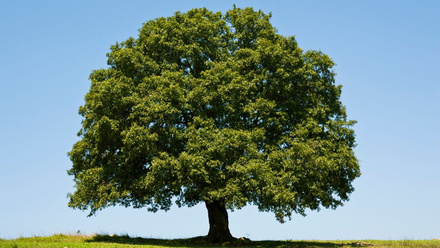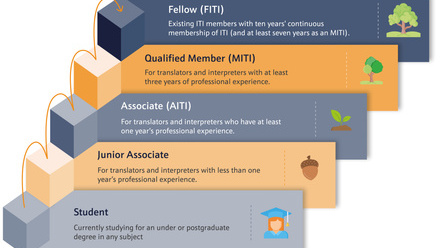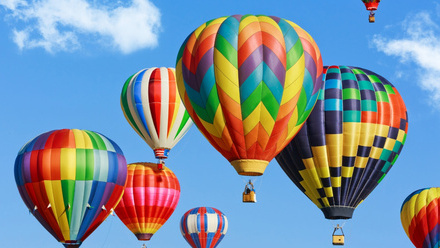A winding road to specialisation
Translators are told to specialise, specialise, specialise. But finding the right specialisation isn't always straightforward. Dina Leifer describes her own identity crisis and how she found her way through.
When you embark on a career as a freelance translator, you will almost inevitably receive one particular piece of advice: specialise.
Whether it’s from experienced colleagues, training course tutors, professional organisations or academics teaching university translation courses, the guidance will be the same: the path to success as a freelance translator lies in developing a specialism and branding your business accordingly. It’s the way to stand out from the crowd of freelance translators and build relationships with direct clients, which in turn would mean more fulfilling work and better pay. And I don’t dispute that this is sensible advice which has helped many early-career translators become more successful over the years. Yet my attempts to put it into practice left me squirming in a kind of panic about my professional identity. Why did I find it so hard to follow?
Returning to a first love for a second career
The answer may lie in my background. I came to professional translation fairly late in life, after an earlier career writing for newspapers and magazines, a spell as a stay-at-home mum and several years working as an in-house journalist and editor for a charity. Languages were my first love, and my return to them via an MA in Translating Popular Culture at City, University of London, was a joy.
There were distinct advantages in being older and more experienced than my fellow students: I had read more books and seen more films than them, so I had a wider cultural knowledge to draw on for the literary and film modules. And my 20-plus years as a journalist and editor stood me in good stead, both for writing essays and for the actual process of translation.
Post MA, I started looking for freelance translation work at the end of 2015. My first assignment was for an agency which specialised in medical and life sciences, translating website copy for a hospital group. It was valuable experience, but the rate was low and the subject matter dull.
Over the next few years I found a diverse range of work through a combination of personal contacts and high-quality agencies: marketing texts on everything from exhibitions to eco-friendly carpet tiles, political and current affairs briefings, tourism, the arts…it was all good experience. I loved the variety, which reminded me of my journalism days, when I would have to research and master new topics all the time.
However, as I became more experienced I realised that the agency rates were pretty low and that there was little prospect of persuading them I was worth more. Around this time I was offered the opportunity to translate an academic book, written by two economists, on the power of the Big Tech companies. Working on this was a wonderful learning experience, which took up all my working hours for a few months. When I’d completed the book, I realised that I didn’t want to go back to working exclusively for agencies, particularly as the main one I had worked for was now mostly offering post-editing of machine translation, which I found soul-destroying.
Searching for a selling point for the next step
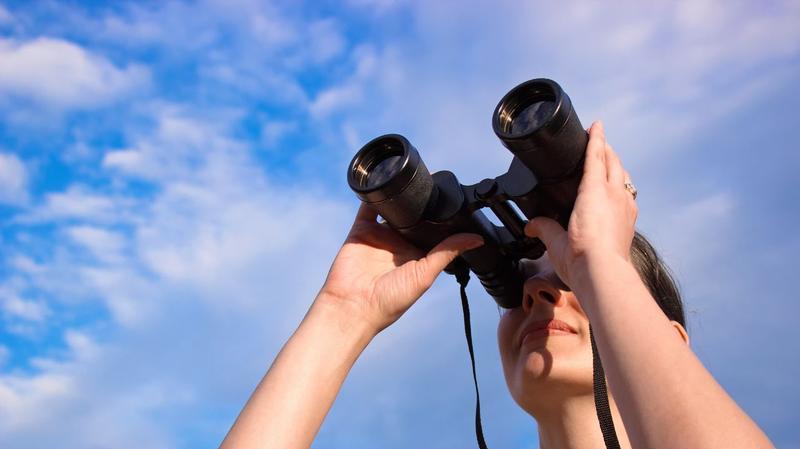
So I investigated the next steps in my career. But I came up against a kind of wall in my head when I tried to describe the unique selling point (USP) that would underpin my brand. I realised that a big part of my identity came from my previous career as a journalist and editor, which involved being well informed on a wide range of topics without necessarily being an expert on any particular one.
My expertise was in language and communication, but that wasn’t specific enough to be a USP. Being flexible and versatile, able to adapt to the tone and register needed and deliver on deadline had been my key strengths throughout my working life. But they didn’t qualify on their own as the specific selling points needed to make me stand out from the competition as a translator.
While others forged ahead with branding and specialisation on topics like wine, food or tourism and produced brilliant marketing strategies, slick websites and eye-catching business cards, I agonised about my own professional identity. I was a translator, but was I also still a journalist? Could that form part of my brand? I had left journalism years before, yet my training and experience in the profession formed a big part of who I am.
I considered medical translation. But my work as a health journalist had mostly involved general health issues. Much of the health-related translation work available seemed to be more clinical and specialised than I felt competent to handle. My interest in literary translation had led me to translate samples and promotional materials for publishers and other literary organisations, but specialising in book-related translations didn’t appear to be a viable business model.
As I was mulling this over, Covid came along and wiped out a lot of my translation work, including a cherished annual job working for the agency which handles the Cannes Film Festival. In the spring and summer of 2020, instead of translating lots of articles about film stars and movies, as I had originally expected, I was offered a few pieces explaining why the festival was first delayed, then cancelled.
Covid and culture: an unexpected positive side
However, this quiet period ultimately made it possible for me to find the direction that I’d been searching for, in my own way.
First, the lack of work allowed me to focus on my family and my own health during those highly stressful first months of the pandemic. Then later on, as things became more stable and the work began to pick up, I realised the topics I most enjoyed translating were all arts-related. I still had a passionate interest in news and current affairs, particularly relating to health, but when it came to translation, I wanted to follow my love of books, film and the arts. Whatever the source of the previous panic had been – late mid-life crisis, impostor syndrome, general overthinking – it had now subsided enough for me to put myself out there as a translator who specialises in culture, while also maintaining an interest in health and social sciences.
I’ve finally started building that website. I’m not sure it’s as focused and businesslike as it might be, but I have at last been able to follow translation career advice in a way that I feel comfortable with, without denying the varied experience and interests that make me who I am.
I asked some translator colleagues how they came to choose the areas in which they specialise
👩🎓 ‘My main specialism is in academic papers and political science: I translate them and edit non-native English writing. I used to feel a bit lost about finding a specialism, but it found me; I didn’t find it. I worked in this area for several years through an agency and developed relationships with the writers. They recommended me to other clients, and it built up through word of mouth. I like the variety and I like being in direct contact with the writers without an agency in the way.’ Jane Roffe (French to English)
👗 ‘I specialise in lifestyle and creative texts. I chose this specialism because of the variety, the creativity and simply because I enjoy reading about lifestyles – travelling, art, culture, wellness, leisure, fashion and beauty. So the research is easy and the writing is enjoyable and challenging in equal doses. I also specialise in human rights, social justice and global health (especially for women and children). I work for many NGOs and consultancies, and I find working in this field very rewarding, and it helps me be aware of what’s happening in the world.’ Nathalie Reis (English to French)
🩺 ‘I’ve always been fascinated by medicine, and had worked in the NHS before I became a translator, so specialising in medicine was an obvious choice for me. This then led me to my other specialism in humanitarian aid, where many projects are health-focused. Both fields give me the chance to make a real difference and have a lot of job satisfaction.’ Marga Burke (French and Italian to English)
🖼 ‘My first degree was in History of Art and Architecture, so, as I was a qualified art historian, specialising as a translator for museums, galleries and the art world was a natural choice. I also used to practise art a lot when I was younger, so I had first-hand experience of many different techniques and mediums. I suppose my visual sensitivity and interest in colours, textures and patterns has also led me to specialise in fashion – my other specialist field as a translator.’ Jadwiga Ruchlewska (English to Polish)
🌴 ‘I was already working at the Department of the Environment and doing part-time translation work in the evenings when I was encouraged to take premature retirement fromt the civil service during the Thatcher period, so it was only natural that I should choose the environment and related matters as my specialist area when I became a full-time freelance translator.’ Robert Symonds (Dutch to English)
🛠‘My speciality, long ago when I started, was electronics and engineering. I have no background in technical subjects at all, but my husband is an electronic engineer, and at the time was working at the cutting edge, developing integrated circuits for one of the leading electronics companies. He read my work, and helped with all the technical terms, and later on, when he switched to teaching the subject at university level, arranged for me to attend lectures given by him and colleagues. It was a process of osmosis really!’ Joanna Waller (French, Italian and Spanish to English)
🏫 ‘I’m a mid-life career changer. My academic background is in history and theology, and as a freelance writer, my main subjects were around history, archaeology, landscape and place. It therefore seemed an obvious progression to use my subject expertise and experience to offer academic humanities as my specialism.’ Lisa Tulfer (Dutch to English)
🐸 ‘I started out by translating some articles on ecology, mainly because my husband is an ecologist and at the time was working with French colleagues. I then moved to academic articles more generally, mainly in the humanities, because my own interest was in these and I was teaching French at university at the time. Later still I was able to obtain some art and museum work (including many audio guides), which is my real passion, and which I very much enjoy.’ Rosemary Rodwell (French and Italian to English)
This article first appeared in the January-February 2022 edition of ITI Bulletin.
Never miss another Bulletin article
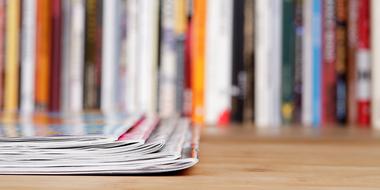
If you would like to read more features and articles on a wide variety of subjects relating to all aspects of the translation and interpreting industry, subscribe to ITI Bulletin. Alternatively, join ITI and get a free subscription included in your membership.


